Duolingo

Recently, various online learning systems, from LinguaLeo to Coursera and Udacity , are actively gaining increasing popularity. In this post, I would like to talk about another service for learning foreign languages, Duolingo , a review of which I have not yet met in Habré.
In short, Duolingo is a service for learning foreign languages online, with the help of which you also help translate the Internet (!). As far as the description is concerned, I will compare this service with the well-known residents of the Hingra LinguaLeo , since I myself used it for a while and follow the updates.
The key difference between Duolingo is that it provides the possibility of learning a foreign language from scratch, while learning on LinguaLeo already requires knowledge of English at a more or less high level, since it is required to translate video or coherent text.
')
At Duolingo, you can learn 3 languages at once - German, Spanish and French (beta). The program of each course is organized hierarchically - in the form of a tree of achievements, as in the real RPG itself - to start learning phrases, you need to go through the basics 1 and 2 parts, and so on.
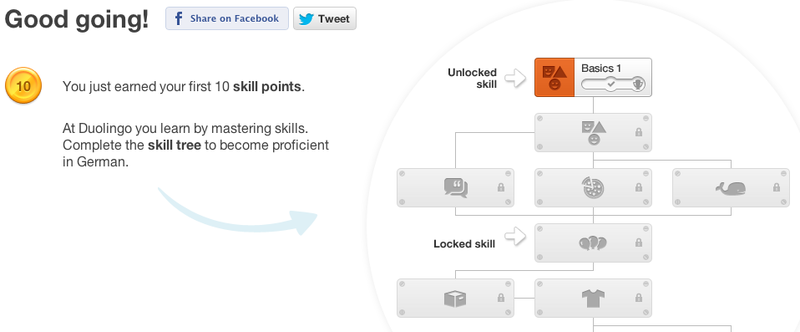
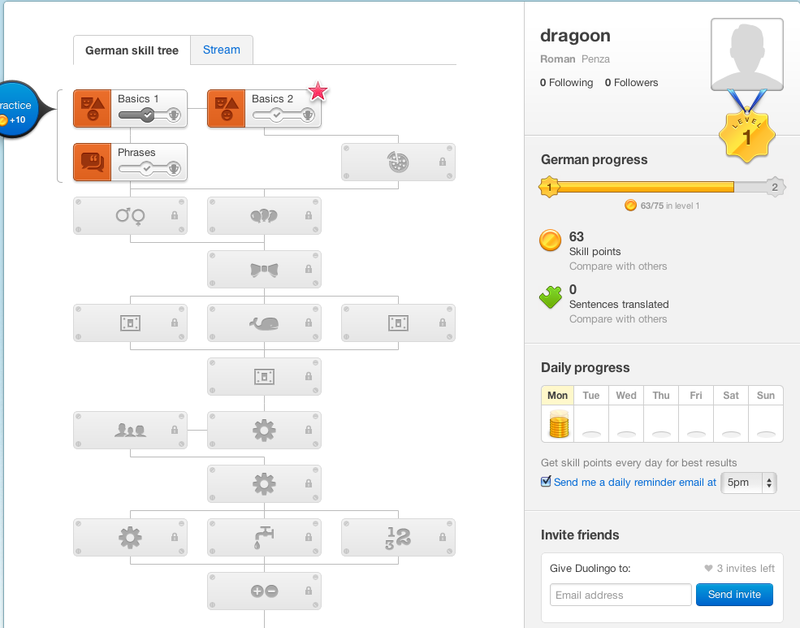
In addition, for each lesson passed, points are accrued, and the transition to a new level when a certain number is reached:
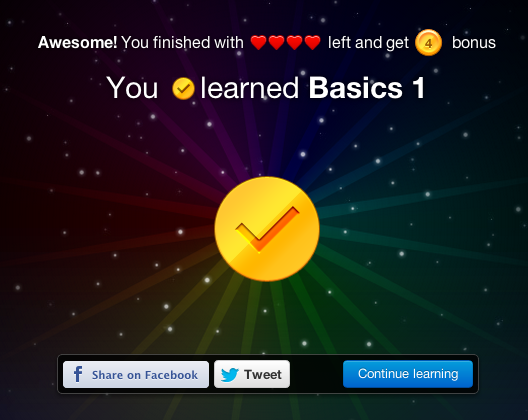
Types of exercise
Each lesson in Duolingo consists of several types of exercises, for example
Translation of text into English:
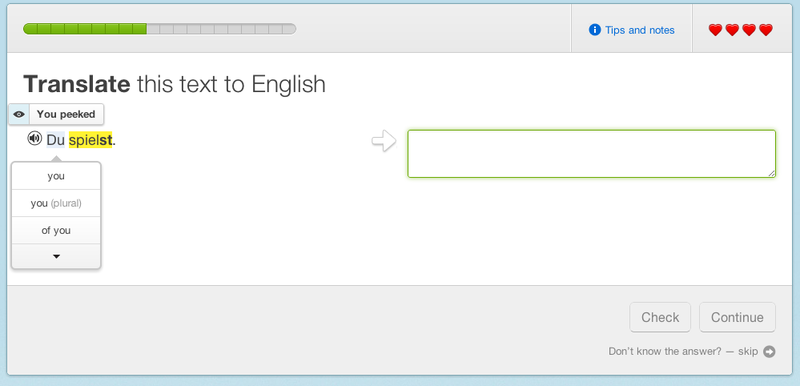
Listening and recording text in the target language:
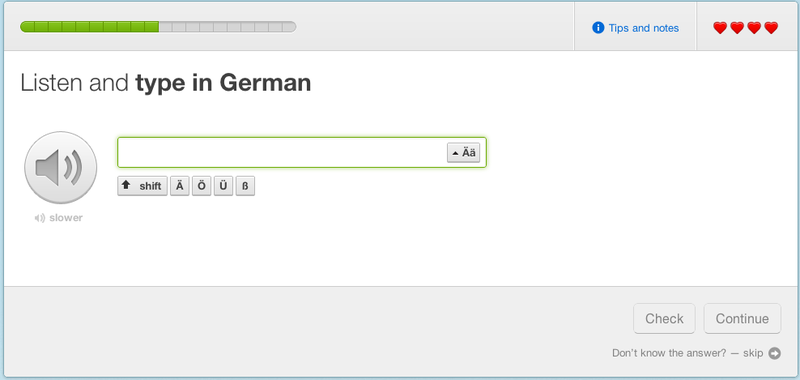
Choosing the right translation:
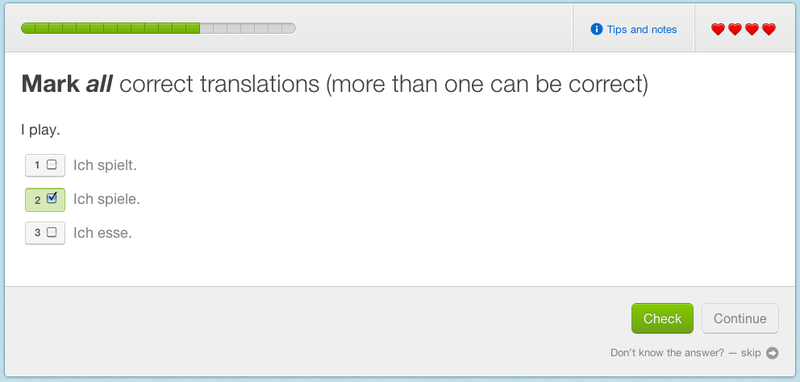
As well as some others, listing everything here does not make much sense, you can see for yourself :)
Crowdsourcing
In addition to the lessons provided by the course creators, in each section you can translate phrases extracted from Internet pages (pages are sent by the owners through the form here: http://duolingo.com/#/upload ). Thus, the creators of the service want to realize the idea of translating the Internet by many people, and each side in this process remains in the win. True, at the moment this functionality is still in its raw state, often suggesting phrases that are cut off from context, or something too complex for their level of knowledge of the language. Because of this, people thoughtlessly translate phrases, taking the first available words, only to get points.
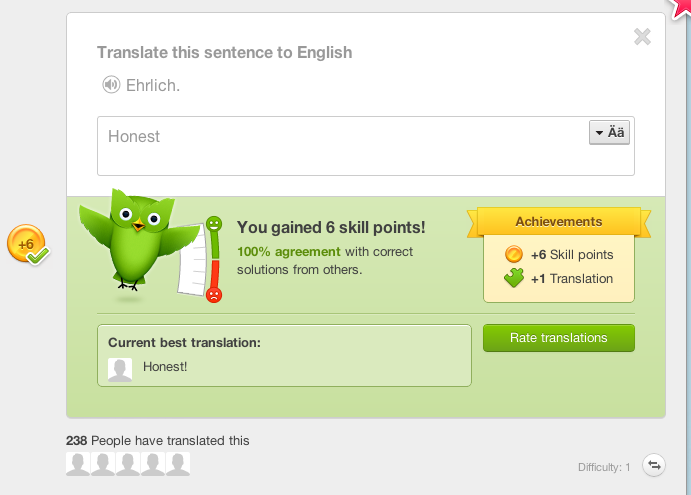
On LinguaLeo, in my opinion, a much more motivating system has been created: you make a good translation, and for this you get your “meatballs” that you can spend on learning the language.
But on the other hand, Duolingo is still ahead.
It is also encouraging that here, as in many other places ( LinguaLeo , Lumocity , StackOverflow ), there is an integration of gamification elements on the site, which contributes to the active involvement and return of users to the service.
The main disadvantage of the service for the Russian-speaking audience, as you may have guessed from the screenshots, is the need for knowledge of the English language, since all the translations in the exercises must be done in English. Well, in general, the interface does not yet offer any other languages.
Also note that the founder of the project is a professor at Carnegie Mellon University, Luis von Ahn , also known for the reCAPTCHA project, which helps digitize books and other works in the field of crowdsourcing.
Thanks for attention!
Source: https://habr.com/ru/post/146868/
All Articles